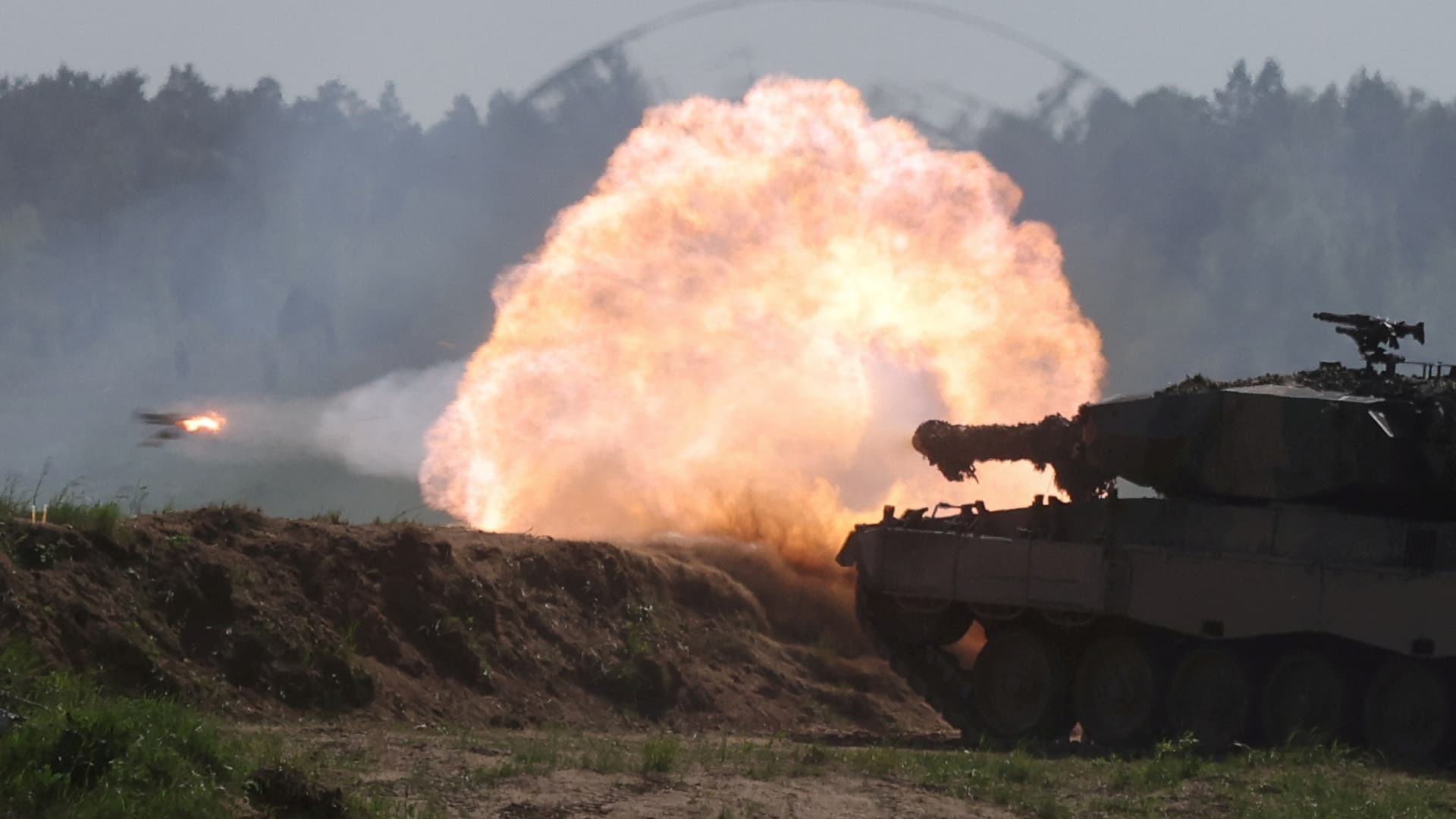A Polish Leopard 2PL tank during a Defender Europe 2022 military exercise of NATO troops including those from France, the U.S. and Poland, at the military range in Bemowo Piskie, near Orzysz, Poland, on May 24, 2022.
Kacper Pempel | Reuters
Poland has decided to cease supplying weapons to Ukraine amidst an escalating dispute over agricultural exports.
According to a translation by Google, Poland’s Prime Minister Mateusz Morawiecki said on the X social media platform (formerly known as Twitter), “We no longer transfer weapons to [Ukraine], because we are now arming Poland.” He added, “Ukraine is defending itself against the brutal Russian attack and I understand this situation, but as I said, we will protect our country.”
In a statement carried by Polish news agency Polska Agencja Prasowa, Morawiecki explained that while Poland supports Ukraine in combating Russian aggression, it cannot allow any disruption of the Polish market due to Ukrainian grain imports.
These remarks come after a significant deterioration in relations between Kyiv and Warsaw.
Poland’s Prime Minister Mateusz Morawiecki delivers remarks with U.S. Vice President Kamala Harris before their meeting in her ceremonial office in the Eisenhower Executive Office Building on the White House campus in Washington, D.C., April 11, 2023.
Jonathan Ernst | Reuters
Warsaw has been a steadfast ally of Kyiv since Russia’s invasion of Ukraine in February 2022. Poland has provided Ukraine with a range of weapons, including modern Leopard 2 tanks and Soviet-era fighter jets, as well as military training for Ukraine’s armed forces.
However, a dispute over Ukraine’s agricultural exports has strained the alliance. Ukraine has had to rely on alternate transportation routes, known as “Solidarity Lanes,” due to Russia’s blockade of its ports. This has led to a surplus of Ukrainian agricultural products in Poland and other Eastern European countries, resulting in lower grain prices and harm to local farmers.
The European Commission attempted to address the issue by allowing Eastern European countries to impose import restrictions on Ukrainian wheat, maize, rapeseed, and sunflower exports. This move caused tension with Hungary, Poland, and Slovakia, which defied the relaxation of import rules and maintained restrictions.
What happened?
Tensions have been escalating between Poland and Ukraine for several months.
Previously, Ukraine’s agricultural exports were transported via the Black Sea with the help of the Black Sea Grain initiative. However, this arrangement collapsed in July, leading to the establishment of the “Solidarity Lanes” by the EU as alternative transportation routes.
Warsaw and other Eastern European countries have expressed frustration over the influx of Ukrainian agricultural products, which has negatively impacted their own grain prices and local farmers.
Last week, the European Commission refused to extend import restrictions on Ukrainian grain, causing further discontent. As a result, Ukraine filed complaints against Poland, Slovakia, and Hungary at the World Trade Organization.
The unilateral ban on Ukrainian agricultural imports imposed by these countries has caused significant losses for Ukrainian exporters.
In happier times: Ukraine’s President Volodymyr Zelensky and Polish Prime Minister Mateusz Morawiecki embrace during a joint news briefing on a day of the first anniversary of Russia’s attack on Ukraine, in Kyiv, Ukraine February 24, 2023.
Viacheslav Ratynskyi | Reuters
Denial of responsibility! Vigour Times is an automatic aggregator of Global media. In each content, the hyperlink to the primary source is specified. All trademarks belong to their rightful owners, and all materials to their authors. For any complaint, please reach us at – [email protected]. We will take necessary action within 24 hours.


